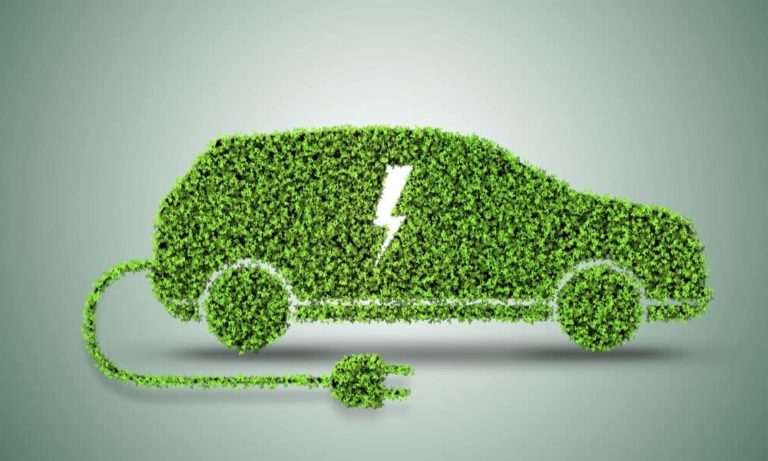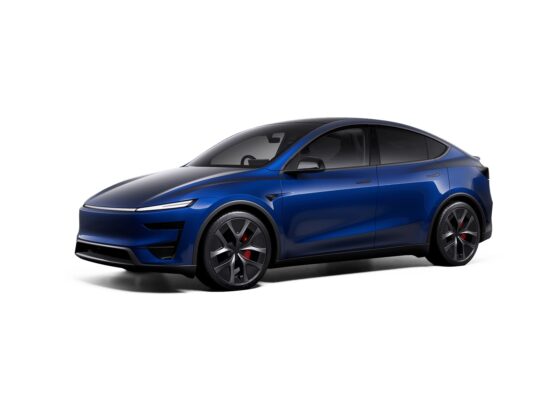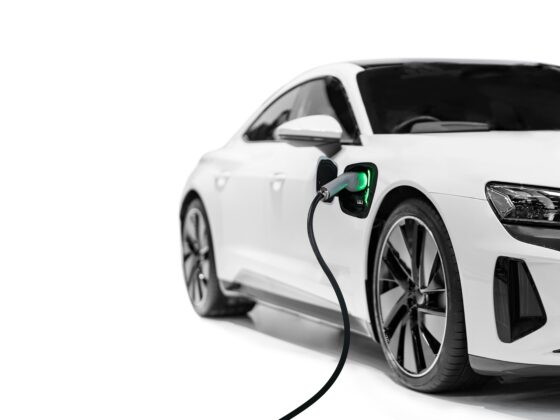
Just How Green Are Electric Vehicles?
Just How Green Are Electric Vehicles? https://wvl.co.uk/wp-content/uploads/Just-how-green-are-electric-vehicles.jpg 1000 600 Anthony https://secure.gravatar.com/avatar/0ce9a76712b2ebb44190c51857fae37600a61d6fe57138c94dce31a727aa27ec?s=96&d=mm&r=gWith just over two years until the EU’s aggressive targets for fleet emission reduction targets come into play, business fleets of all sizes are in the process of exploring the best options for electrifying their fleet.
But are electric cars really greener? And if so, just how much difference might going green make to your fleet? Here, we answer those questions.
Are electric cars better for the environment?
First off, we’ll look at CO2 output.
Just a visit to Carbon Counter shows at a simple glance just how environmentally friendly electric cars are compared to petrol and diesel vehicles.
To illustrate that point, we’ve pulled out CO2 output for four different kinds of vehicles plotted on the Carbon Counter graph…
| BMW i3s | Honda Accord | Hybrid Sport/Touring
|
Toyota 86 automatic | 4Ram 1500 2WD Diesel 3.0L | |
| Fuel Type | Full EV | Petrol Hybrid | Petrol | Diesel |
| Carbon dioxide per mile
(CO2 eq/mile) |
131g | 204g | 320g | 347g |
The table above shows clearly how much lower the CO2 output of the fully-electric model is versus even the hybrid model, with the petrol model more than double and the diesel alternative being almost three times as polluting.
However, if that were all there was to it, this would be a particularly short post! Outside of fumes there are a number of other factors to consider before you can understand just how environmentally friendly EV cars are…
The source of electric fuel

The next factor that influences just how green electric vehicles are is the origins of their fuel.
By ‘fuel,’ of course, we mean electricity, so a good place to start there is the National Grid. According to their official website, almost half (43%) of Britain’s current energy is renewable. There’s also the fact that the carbon footprint of our energy sector is decreasing in size faster than anywhere else in the world.
These are both incredibly promising facts, especially for current or prospective EV owners concerned with climate change, as well as for business fleets concerned with lowering their emissions.
That being said, answering the question ‘are electric cars really greener’ doesn’t stop there…
Are electric cars really greener on the manufacturing side?
So far EVs are two-for-two when it comes to being undeniably greener. Things are less clear cut, however, when you look at EV manufacturing.
This can be put down to the environmental costs of mining materials that go into typical EV lithium batteries.
Take lithium itself, for example. Mining it requires extensive amounts of water. In fact, because of this, EV production on the whole is around 50% more water intensive than non-EV vehicle production. However, the lithium for EV batteries found in hot countries like Argentina, Australia, Chile and Bolivia, which have massive water shortages – meaning EV production actually detracts from things like crop irrigation in those areas.
Added to that, there is also predicted to be a shortage of lithium by 2030, meaning EV production could be posed with some significant problems, right around the time petrol cars are being phased out.
Lithium itself isn’t the only issue, either. EV batteries are also full of cobalt, which carries its own mining challenges from both an environmental and ethical perspective. These include:
Mining the world’s main source of cobalt in The Congo can cause the metal substance to mix with river water, potentially damaging the health of people in nearby communities.
Many of the mines sourcing this cobalt are unregulated ones where the workers (typically small children) use hand-based ‘artisanal’ methods – a similarly dangerous and health-hazardous task.
Automotive companies are taking steps to address both of these issues, with artisanal mines in particular being closed down in favour of reputable methods of cobalt mining. However, with supplies of the metal not limitless, it will take more than refined mining methods for EV production to become environmentally sustainable at a larger scale.
The challenges behind EV battery recycling

What happens to used EV batteries at the end of their lifecycle?
The last consideration to factor in when gauging Just how environmentally friendly electric cars are is the measures being put in place to recycle and reuse spent batteries.
According to a University of Warwick study referenced in City A.M., there will be more than 339,000 tonnes of lithium batteries at the end of their lifecycle come 2035. When you consider that 2035 is also when hybrid car manufacture will end on UK shores, this will clearly be the time by which a highly efficient method of recycling old lithium batteries en masse needs to have been rolled out.
That will mean much investment being made by automotive companies, along with deep-dive research being performed into the most economical way for governments or private companies to source these materials.
There’s work to be done – but EVs are the future
On the whole, there’s little argument against the idea that electric cars are better for the environment. When it comes to the extent of the improvement, however, the devil will be in the details – and there’s more than a decade for automotive manufacturers to work those out.
In the here and now, business fleets need to know one thing: electric cars really are greener, and can certainly help you lower your fleet emissions to meet EU targets – and help you avoid hefty financial sanctions.
So, if you’re looking to go green in the coming years, get in touch with our team – they’ll help track down the right electric vehicle, whether it’s a single electric car for a member of your team, or a fleet of EVs for a larger electric rollout.




